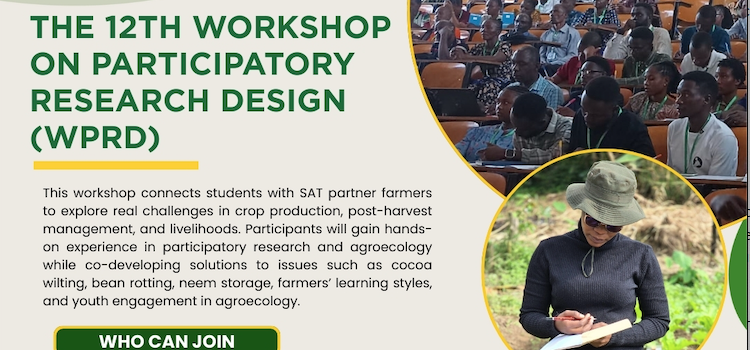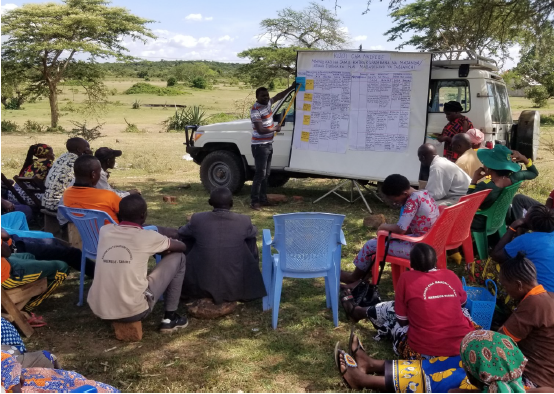Enhancing Grain Preservation with Hermetic Storage Bags

A Gathering of Innovators: Workshop in Morogoro
A dynamic gathering took place at the SAT premises in Morogoro. Lead farmers from the districts of Gairo and Mvomero in Morogoro region, as well as Chamwino and Kongwa in the Dodoma region, along with manufacturers and suppliers of hermetic storage bags, and SAT staff members, converged for a crucial workshop. Their mission: to revolutionize grain storage and combat post-harvest losses through the strategic implementation of hermetic storage bags. This meeting marked a decisive moment in the ongoing Post-Harvest Management (PHM) Project.
Understanding Post-Harvest Losses for Smallholder Farmers
Smallholder farmers lose a significant portion of their harvest to mold, insects, mildew, rats, and other causes. They often face seasonal food insecurity and price fluctuations, having to sell their harvest at low prices during the harvest season or dealing with significant food waste due to improper storage methods. Using chemicals to preserve the harvest is expensive and jeopardizes the health of both farmers and consumers. However, hermetic storage bags offer a solution by controlling moisture and insects without using pesticides.

Laying the Foundation for Successful On-Farm Grain Storage
The overall aim of the PHM project is to improve year-round food and nutrition security and economic opportunities among smallholder farming households in Tanzania through the adoption of improved on-farm grain storage. During the first project phase (2022-2023), research was conducted to better understand agricultural production, processing, and storage, and their relation to household welfare, food security, and human health in Tanzania. Training lead farmers in handling grains properly after harvest and distributing hermetic storage bags significantly reduced seasonal food insecurity for the involved households.
Challenges in the Uptake of Hermetic Storage Bags
Despite these advantages, the general uptake of hermetic storage bags remains low, with less than one percent of smallholder farmers in sub-Saharan Africa using hermetic storage technologies. In the previous project phase, it had been observed that small-scale farmers were not able to access hermetic storage bags because of financial constraints, as the cost of approx. $2 per bag can be a significant challenge for their households.
Phase II of the project focuses on upscaling the use of hermetic bags among smallholder farmers in Tanzania.

Collaborative Strategies for Promotion
During the SAT workshop, farmers, hermetic bag suppliers, and SAT staff worked in groups to find resolutions and ways to promote the use of hermetic storage bags. The group presentations highlighted strategies to enhance the project's implementation and addressed various challenges identified during the initial phase. Their suggestions to raise awareness, educate farmers, and make hermetic bags easily accessible include:
- Raising awareness and educating farmers through local agents on the benefits and use of hermetic bags, as well as through public events, mass media, and promotional materials.
- Using traditional songs in exhibitions to highlight the importance of hermetic bags and convince the community of their benefits.
- Providing testimonials from current users on the quality of hermetic bags.
- Including local village leaders in the project and encouraging their active participation to ensure broader community support.
- Building strong relationships between farmers and hermetic bag suppliers to ensure reliable supply chains and improving infrastructure in remote areas to facilitate access to hermetic bags, such as opening branches in local villages.
- Ensuring agents supply hermetic bags on time before the planting season.
- Reducing prices of hermetic bags and selling them to farmers with deferred payment options and reasonable repayment periods.
Research-Based Recommendations for Implementation
Research from the previous project phase also suggests offering hermetic storage bags at a VAT-discounted price or with a deferred payment option of 10 weeks would lead to better uptake of bags. The effect was most pronounced when both measures were combined.
Key Institutions and Their Roles
The project is implemented in collaboration between the University of Zurich, Sokoine University of Agriculture (SUA), Helvetas Tanzania, and Sustainable Agriculture Tanzania (SAT).
The project is kindly supported by Liechtenstein Development Service (LED).







